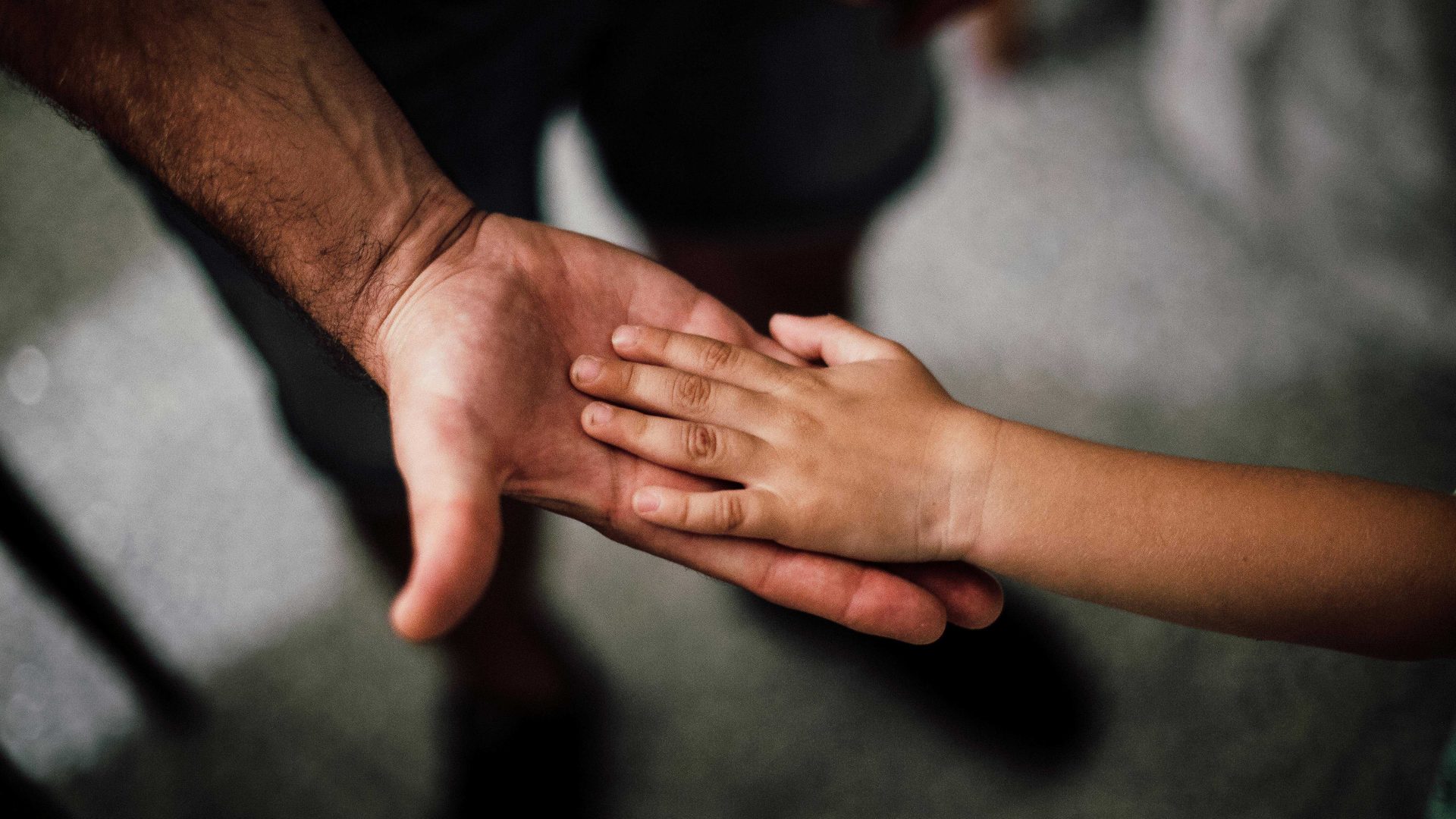By Marie Vaile
“I was so busy trying to keep it all together, holding my newborn son, watching my wife pass out on the operating table, I didn’t know what to do or feel”
These are the words of my husband following the traumatic birth experience of our newborn son and incredibly difficult pregnancy which saw me hospitalised multiple times and often unable to get out of bed. As I received immediate medical care and later, counselling, my husband was left standing in the corner of the hospital room holding our newborn son, holding back tears and emotions he didn’t yet have a name for. He was expected to be strong. To support me. To not fall apart.
For many men, the path to fatherhood includes a terrain of silent suffering—through baby loss, birth trauma, and the psychological shift that comes with becoming a parent. Yet their pain is often unseen, unspoken, and unsupported.
Birth Trauma Isn’t Just a Maternal Experience, Dads Feel it Too
Traumatic births—emergency interventions, haemorrhaging, life-threatening complications—can also leave deep psychological scars on fathers. Research increasingly points to a link between traumatic birth experiences and symptoms of post-traumatic stress disorder (PTSD) in men.
Yet men rarely receive follow-up care or mental health screening after such events. In the eyes of the system, the birth is over, the baby is alive, and the father is expected to simply carry on. But in reality, what he’s left with are feelings of guilt that he couldn’t do more to prevent a traumatic birth because of the societal viewpoint that they are conditioned to believe it’s their role to protect their partner. Coping with birth trauma as a father looks very different to how a mother will cope.
While mothers usually endure the physical trauma of childbirth directly, fathers are often witnesses to the event, feeling helpless, terrified, and powerless as they watch someone they love suffer.
Because fathers aren’t the ones giving birth, their trauma can be easily overlooked by healthcare providers, by society, and even by themselves. Many men believe they have "no right" to be traumatised because "they weren’t the one going through it," leading them to minimise or suppress their feelings.
Therapy gives men the space to explore these feelings and emotions and most importantly, to have them validated.
The Unseen Side of Loss: Support for Grieving Fathers
Each year, thousands of families experience miscarriage, stillbirth, or the death of a baby shortly after birth. While much of the attention—rightly—focuses on the mother’s health and recovery, fathers are frequently overlooked in the aftermath as they are treated as emotional bystanders. But they are grieving too, this was their baby as much as the mother who has endured this unimaginable painful loss.
The emotional toll can be profound. Men report feelings of helplessness, failure, anger, and depression after losing a baby. Some struggle with guilt over not being able to "fix" the situation, while others suppress their emotions, fearing they’ll be seen as weak or burdensome.
A Fathers Transition into Parenthood: Male Postnatal Depression
Even when the birth goes to plan, the early weeks and months of fatherhood can take a significant toll on mental health. Sleep deprivation, loss of identity, financial pressure, and the sudden weight of responsibility can trigger anxiety and depression.
Post natal depression impacts men too, it isn’t just about mothers. An estimated 1 in 10 new fathers experience postnatal depression, according to a study in the Journal of Affective Disorders. But due to stigma and a lack of awareness, many go undiagnosed and untreated. A new dad needs just as much emotional support during this transition as mothers do.
Breaking Point: Suicide and Silence
The consequences of ignoring men’s mental health can be devastating.
In the UK, suicide remains the leading cause of death among men under 50. Globally, men are 3 to 4 times more likely to die by suicide than women. While the reasons are complex, unaddressed trauma, grief, and emotional isolation are significant contributing factors.
Historically, men have been taught not to show emotion, not to cry and to “man up”. All this means is that those emotions are stored deep inside of them, simmering with no where to go because men hold this belief they can’t show them. This can be fatal.
A Quiet Revolution: Men in Therapy
Despite decades of stigma, a quiet shift is underway. Mental health charities report a rise in men seeking therapy over the past five years, particularly after becoming fathers. Campaigns like Movember and CALM (Campaign Against Living Miserably) are reshaping the narrative around masculinity and mental wellbeing.
Online support groups, father-focused charities, and Instagram communities are also playing a critical role in providing connection and validation. Men being honest about their emotions so publicly is slowly starting to happen more and more. Whilst we still have a way to go, change is coming, and men are feeling less afraid to simply say they need help.
Systemic Gaps—and the Need for Change
While cultural conversations are shifting, institutional change remains slow. Most postnatal care is still geared exclusively toward mothers. Fathers are rarely screened for depression, nor are they included meaningfully in postnatal mental health discussions.
Organisations like Dads Matter UK, PANDAS, and Sands are calling for:
Routine mental health screening for all parents.
Bereavement support that includes fathers.
Training for healthcare providers to recognise paternal distress.
Workplace flexibility for grieving and new fathers.
Changing the Narrative
To build a world where men can talk about grief, trauma, and the emotional upheaval of fatherhood, we must first create the space for them to be heard.
Not as protectors, providers, or stoic supporters—but as people. People who feel deeply, who break down, and who need care too. Men are not robots who can simply switch off their emotions.
So, the next time a new father looks tired, or distant, or unusually quiet, don’t assume he’s just adjusting to the lack of sleep. Ask him how he is doing. Really ask.
Because strength doesn’t come from silence—it comes from being seen.
Call to Action
If you're a dad struggling, know this: you are not broken, and you are not alone. Speaking up takes real strength — and it can change everything, for you and your family.
I’m an experienced therapist specialising in the mental health challenges that can arise during and after having children—including birth trauma, baby loss, and postnatal depression. If any of these experiences resonate with you, please know that support is available. Therapy offers a safe, non-judgemental space to talk openly about whatever you’re going through.
Men’s Counselling Service offers a diverse group of experienced counsellors, providing a safe and supportive space where you can connect with a therapist who understands men’s mental health, including myself.
Written by Marie Vaile, to find out more about Counsellor and Psychotherapist Marie Vaile and the services she offers click here, or the button below.


